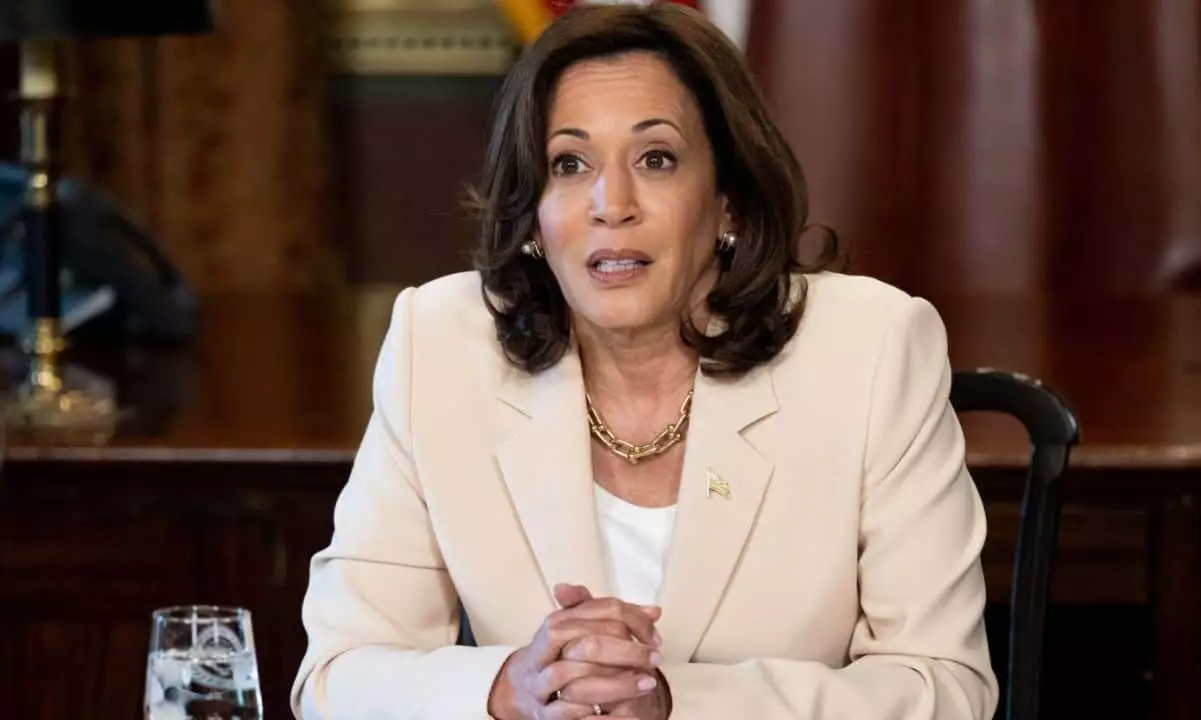The intersection of politics and digital assets is a complex landscape, particularly in the United States. As the 2024 presidential election approaches, candidates are increasingly recognizing the influence of the cryptocurrency sector, especially among marginalized communities. Vice President Kamala Harris has made waves with her recent pledges aimed at bolstering support for cryptocurrency policies that would protect investors, particularly targeting the participation of black men in this burgeoning market. However, the implications and effectiveness of these promises merit a deeper examination.
With an estimated 20% of Black Americans owning or having owned cryptocurrencies, it is essential to acknowledge the growing involvement of this demographic in digital assets. Harris’s campaign seeks to address historical inequalities in access to financial services, explicitly recognizing that the advent of digital currencies could provide an entry point for economic empowerment. By underscoring her commitment to creating a regulatory framework that protects these investors, Harris aims to resonate with a demographic that has often felt marginalized in financial systems.
However, the specificity of this alleged regulatory framework remains vague. While the intent is commendable, without clear guidelines or actionable steps, it risks becoming mere political rhetoric. The absence of details leaves room for skepticism, as stakeholders within the crypto community seek assurance that their interests are truly being prioritized.
The political landscape is rife with contrasts. Critics have been quick to highlight Kamala Harris’s perceived shortcomings when it comes to understanding and supporting the cryptocurrency ecosystem. Notably, Bitcoin Magazine’s Nikolaus Hoffman dubbed her “the worst candidate for Bitcoin,” suggesting that her recent commitments lack depth and specificity compared to the more robust plans articulated by former President Donald Trump. Trump’s pivot towards a pro-crypto stance is marked by explicit commitments to regulatory reform, as well as promises to establish a Bitcoin advisory council.
The juxtaposition lays bare the challenges Harris faces: can she effectively engage with digital asset communities while simultaneously addressing the historic injustices that black men have faced in finance? Trump’s outreach and seemingly genuine embrace of cryptocurrency could potentially undermine Harris’s efforts if not handled tactically.
The strategic focus on black men as a key voter bloc is a pointed effort by the Harris campaign to galvanize support. Given the electoral puzzles both parties are attempting to solve, aligning cryptocurrency advocacy with the interests of marginalized groups appears to be an attempt to broaden the voter base. However, the approach must transcend symbolic commitment; substantial and substantive policy initiatives are essential.
It’s noteworthy that during her campaign appearances, Harris notably refrained from discussing foundational aspects of cryptocurrency, such as blockchain technology. This omission raises questions about her understanding of the industry she seeks to engage with. Voters and investors alike might find it hard to take her promises seriously if she cannot articulate an informed stance on the core technologies that drive digital assets.
Harris’s entanglement with the Biden administration complicates her position. There exists a palpable mistrust among crypto advocates towards the administration’s approaches, largely instigated by SEC Chairman Gary Gensler’s rigorous enforcement against perceived malpractices within the industry. This perception of regulatory overreach amplifies the skepticism surrounding Harris’s newfound advocacy.
For Harris, distancing herself from an anti-crypto sentiment organically linked to her administration while simultaneously positioning herself as a defender of crypto interests presents a conundrum. The road ahead may not only be about drafting enticing policies but also about rehabilitating the administration’s image in the eyes of an increasingly influential and skeptical crypto community.
The rapid development of the cryptocurrency space necessitates a nuanced understanding of its implications across financial, social, and political domains. As Harris navigates this complex terrain, her challenge will be not just to promise protections for crypto investors but also to deliver a coherent and informed strategy that genuinely addresses the needs of diverse participants. In an electoral climate marked by deep divisions, successful engagement with the cryptocurrency community could prove pivotal, not only for Harris’s campaign but also for the broader movement advocating for equitable access to financial opportunities. The coming months will test her ability to bridge these divides and live up to her pledges in a swiftly evolving sector.

